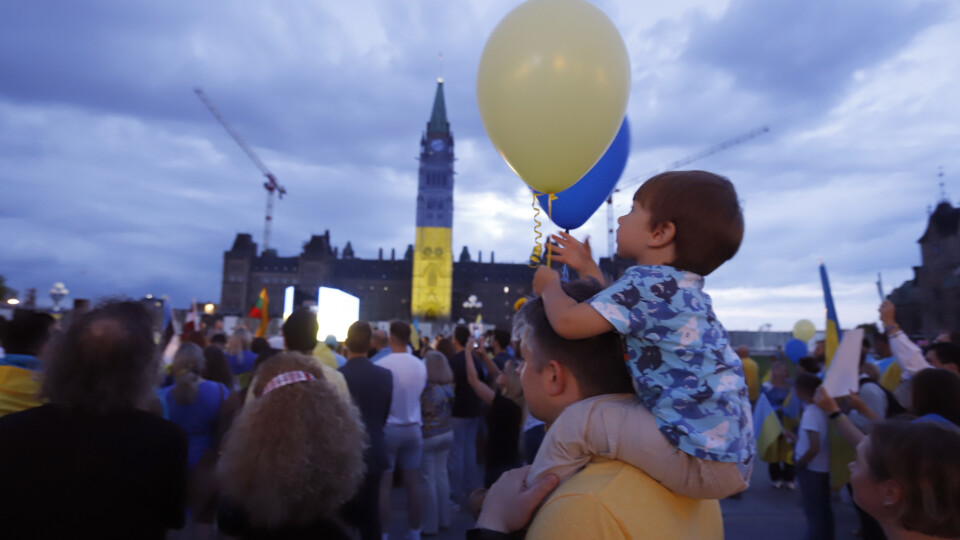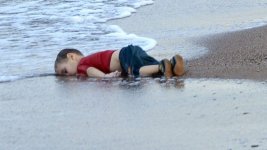This, from today's Good Grey Globe, is about the USA, but I am pretty sure it overlaps here in Canada and in much iff Europe, too:
----------
Immigration is top of mind for U.S. voters, even in places where there is practically none
The importance of immigration and border security to voters in the country’s more remote and rural corners underscores Republican success in using the issue to bolster support
NATHAN VANDERKLIPPEINTERNATIONAL CORRESPONDENT
MISSOULA, MONT.
PUBLISHED 10 HOURS AGO UPDATED 1 HOUR AGO
The Montana city of Missoula extends along a valley carved by the Clark Fork of the Columbia River between mountain ranges – the Bitterroots to the southwest, the Rattlesnakes to the northeast. Historically, when people here thought of the border, they thought of the 49th parallel, a few hours to the north by car. The nearest crossing to Mexico lies a full day’s drive away, some 2,000 kilometres by road.
In the past year, federal authorities counted 174 refugees who arrived in the entire state. In May, the sole arrival was a single refugee from the
Democratic Republic of the Congo. There is little evidence of illegal migrants taking up residence in Montana. The buses dispatched by Republican governors to haul migrants away from Texas and Florida did not bring people here.
Yet as the election approaches, immigration and border security has become one of the issues of greatest concern for many Montanans. That’s true even for people not inclined to vote for
former president Donald Trump, who has made issues related to the southern border the centrepiece of his effort to win re-election.
For Montana voters of all political persuasions, “it’s a top-of-mind issue,” said Evan Wilson, a pollster with Peak Insights, which works for Republican campaigns.
Illegal migration is a leading concern for Republican and independent voters across the U.S. But its importance to voters in the country’s more remote and rural corners underscores Republican success in using the issue to bolster support.
“In rural flyover America, immigration is a huge issue, because in rural communities there is an impact,” Mr. Wilson said. People reliant on subsidies, such as farmers, are loath to see federal funds dispensed to the millions of people who have crossed the southern border illegally, he added.
“Every new non-citizen that is included in our country impacts everything,” he said. Such a concern is not reflected in federal data, which show no evident connection between immigration and farm subsidies.
For Republicans, Montana holds unusual importance in this year’s election, as the party seeks to take control of the U.S. Senate by winning the seat now held by local farmer Jon Tester, a Democrat.
“The border crisis is absolutely impacting Montana,” Tim Sheehy, the Republican Senate candidate in the state, recently told Fox News. “We’ve been feeling that in every community across the state,” he added.
Montana streets are not visibly populated by migrants. Local conservatives have nonetheless warned that illegal migrants have brought with them new dangers.
“Every state has become a southern border state because of this all-out flood of illegal aliens across our southern border that bring in fentanyl and meth – even right here into Montana,” said Aaron Flint, a popular conservative radio host whose show,
Montana Talks, is broadcast across the state.
He pointed to Stacy Zinn, who until last year led the Drug Enforcement Agency’s operations in Montana. In an interview, Ms. Zinn said at least two major cartels have expanded into the state, selling drugs on and through Indigenous reservations. Other states, she said, have been so saturated with drugs that prices have fallen. Montana has proven more lucrative for drug sales.
“What we see is that the influx of illegal immigrants coming from across our border has actually now impacted Montana,” she said.
“This is virgin land for those individuals that want to pollute our reservations and sell their drugs.”
Like elsewhere in the U.S., seizures of fentanyl in Montana have risen dramatically. They have increased nearly sevenfold from 2021 to 2023, the state’s Department of Justice has reported.
Ms. Zinn pointed to other areas of concern. A growing Hispanic population is arriving, she said, and “you can tell that they are being labour-trafficked.” Also, she added, she has seen an increase in numbers of Mexican restaurants that “are starting to be more lucrative. It’s money laundering. You can recognize the signs.”
She did not elaborate on the nature of those money-laundering indicators. Brad Griffin, managing director of the Montana Retail Association, said he was not aware of any recent increase in Mexican restaurants. FBI data show violent crime in the state fell 6 per cent from 2021 to 2023. Nationally, violent crime decreased more than 10 per cent in the first half of 2024.
Mr. Trump nonetheless has
held migrants responsible for what he has, against all evidence, called rising crime rates, saying new arrivals are “poisoning the blood of our country,” while foreign criminals have “invaded and conquered” cities.
Even among Montanans who say immigration is not their top priority, Mr. Trump’s dark warnings have found resonance.
Roger Vaneps owns a concrete company and has been impressed by the skill and diligence of Mexican workers. Inflation is his primary consideration in the election. But he worries that border problems are harming national security.
“You know, I’m not trying to point out Muslims necessarily, but we can’t have people in our country that do want to do us harm,” he said.
Montana’s population is nearly 90 per cent white, and for many decades the state did not formally accept refugees. That changed in 2016, in part because of the efforts of a group that now runs
Soft Landing Missoula, a non-profit in the city that helps with roughly 600 people from more than 30 countries.
Most are refugees from places such as Syria, the Democratic Republic of the Congo, Afghanistan and Yemen.
Mary Poole, the executive director of Soft Landing, has been frustrated by the ways migration fears have grown more acute.
“Here in our state, there’s no invasion. It’s a very, very low number of refugees and immigrants in comparison to many other states,” she said. Nonetheless, children of refugees have reported being bullied in playgrounds. A Haitian woman told Ms. Poole she and her son were harassed on a bus.
Many Montanans remain supportive of refugees. In Missoula, volunteers continue to sign up, and other cities in the state have begun their own resettlement programs.
But Ms. Poole said the political climate in the state has created new problems.
“Any time you’re going to use a vulnerable population for votes – that’s not something that I would agree with.”
----------
I don't think this has anything to do with immigration in general; I don't think the people in Montana, Monaco or Manitoba care in Icelanders or Irish or Fijians or Filipinos immigrate here.
I know that former President Trump has a thing about the Southern border but
I think he, and many, many

s,

s and e.g.

s and

s and so on are opposed to Muslim immigration and the changes that some - NOT all - Muslims want to make to our countries.





